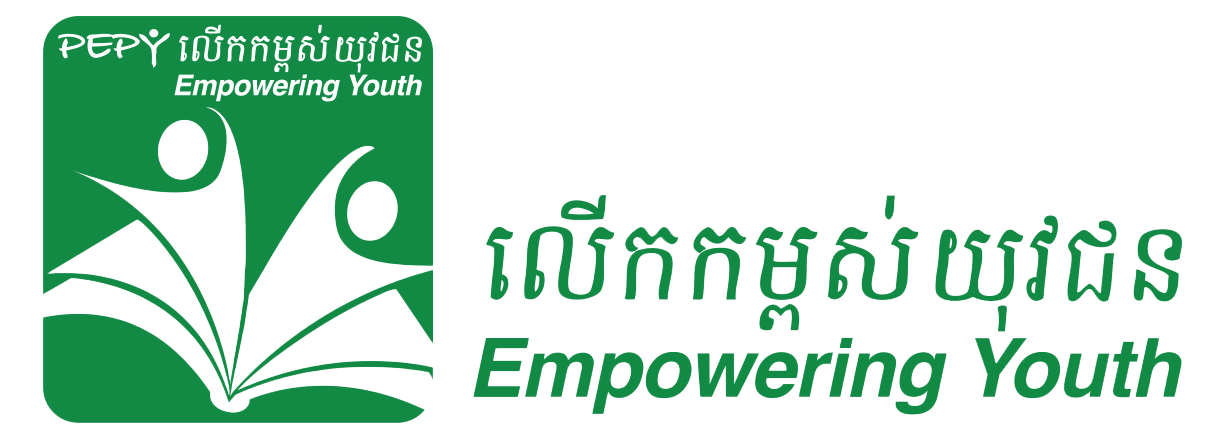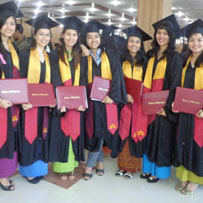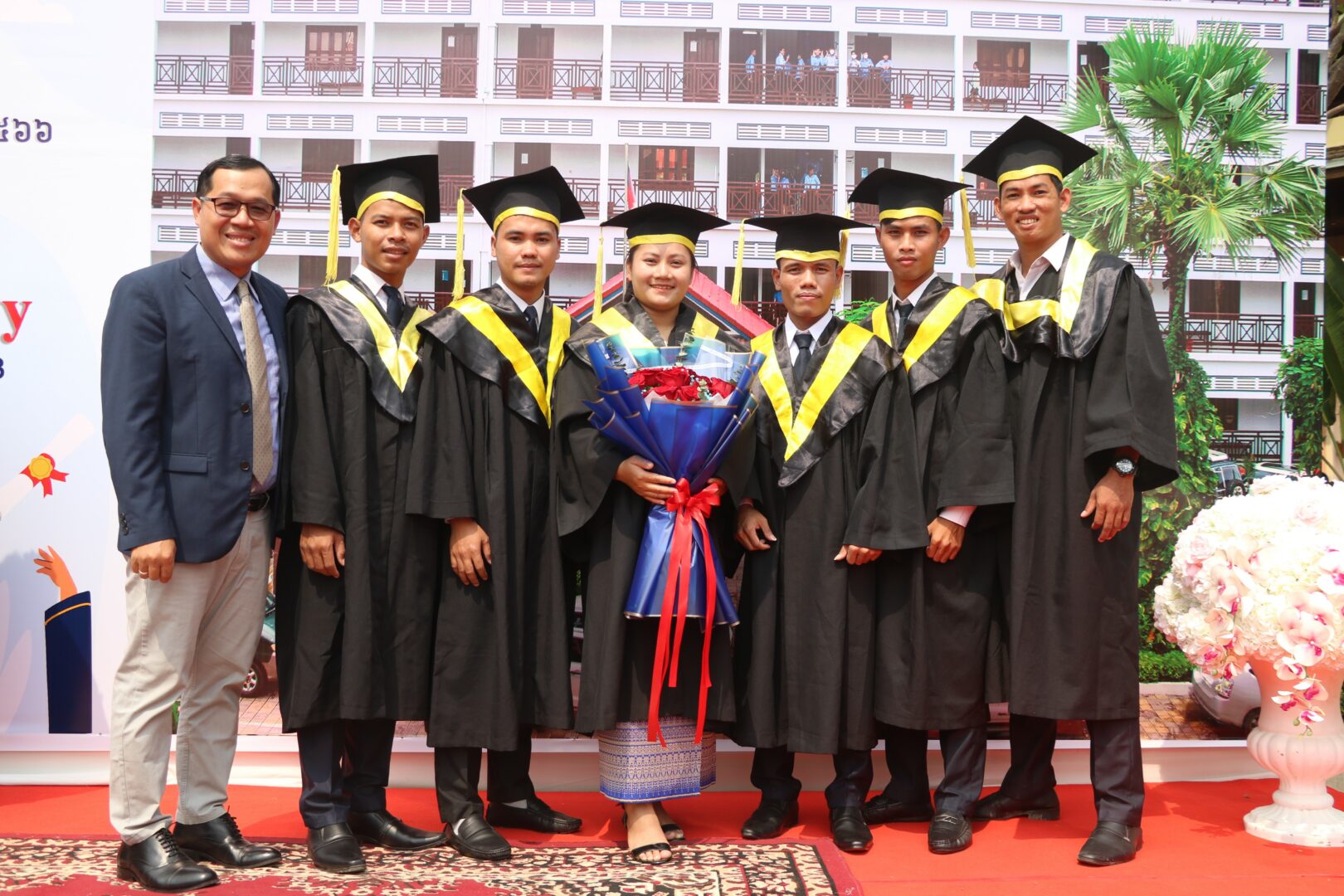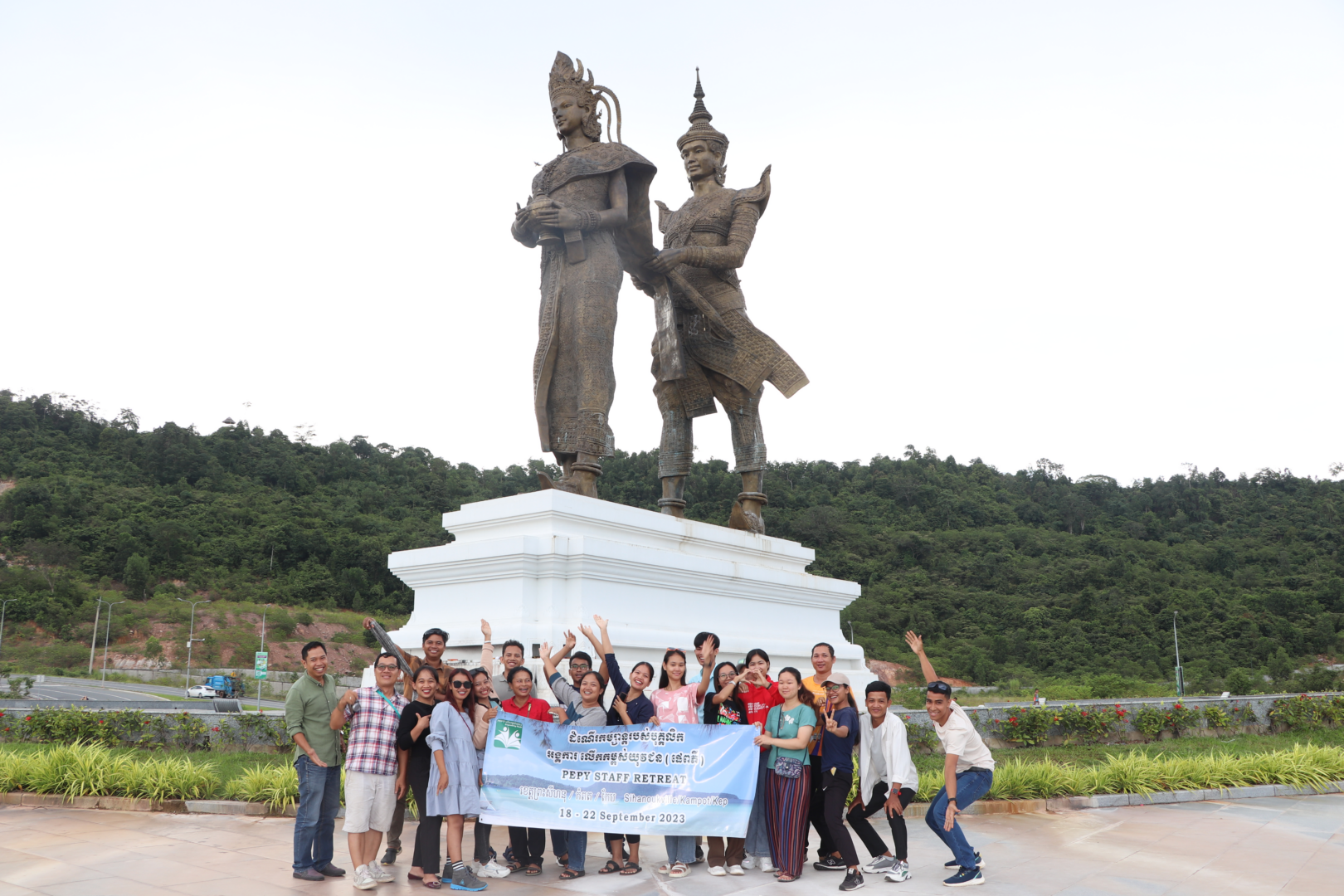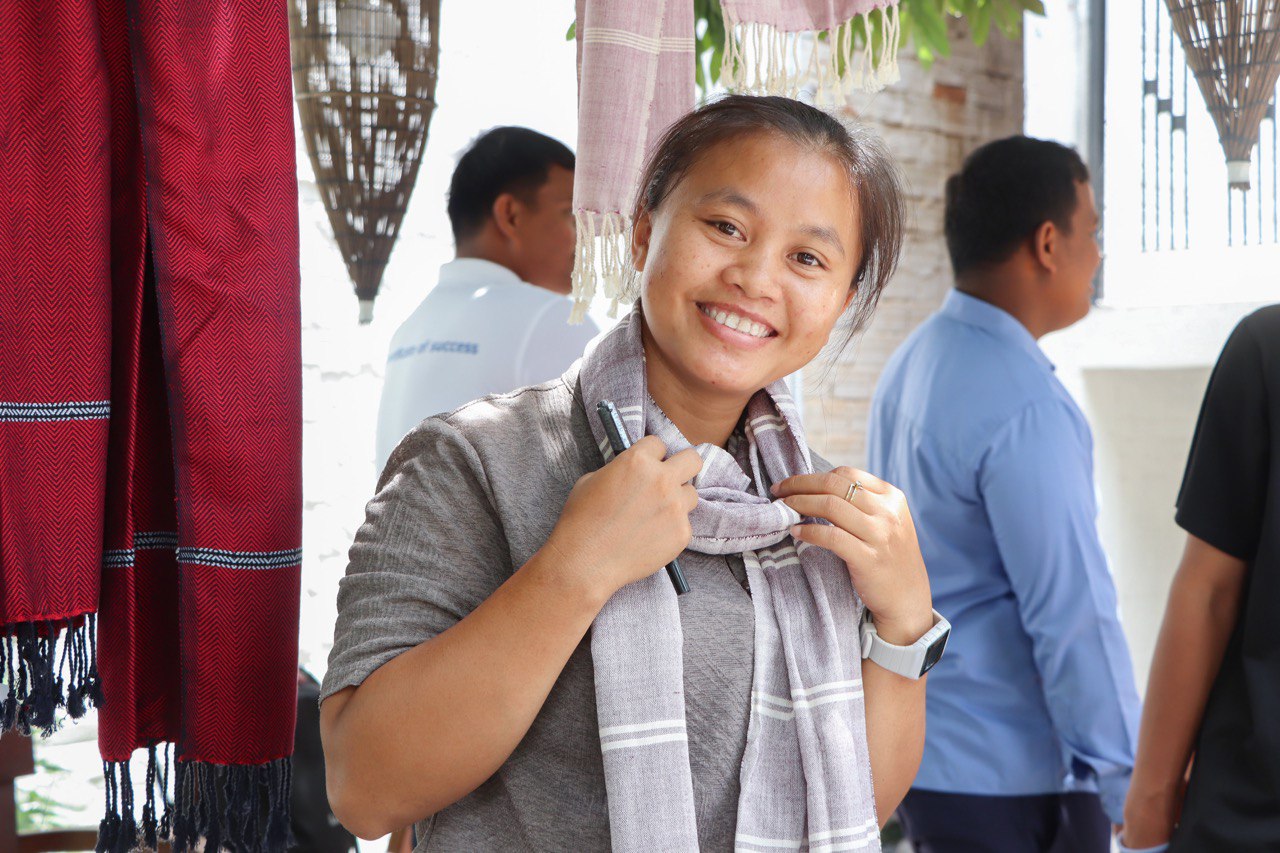“My name is Bailou. And it’s my turn”
October 11, 201320 New Scholarship Students
October 29, 2013 When Kimsru first applied for a scholarship to study at the Asian University for Women (AUW), she barely understood English and did not even know where Bangladesh was. 5 years later, Kimsru has given a speech at the same symposium as Muhammad Yunus, writes English articles on social issues, and is part of an international network of AUW graduates.
When Kimsru first applied for a scholarship to study at the Asian University for Women (AUW), she barely understood English and did not even know where Bangladesh was. 5 years later, Kimsru has given a speech at the same symposium as Muhammad Yunus, writes English articles on social issues, and is part of an international network of AUW graduates.
When PEPY first heard about AUW’s mission in 2008, we were immediately convinced. AUW’s goal to enact social change by educating and cultivating women leaders, especially those from under-served communities, was inspiring. We wanted Cambodian students to benefit from AUW’s scholarship program, and volunteered to be the university’s in-country recruiting partner. After four months of giving presentations throughout the country and an intense selection process, scholarships were awarded to 8 young Cambodian women. Along with peers from Bangladesh, India, Nepal, Pakistan and Sri Lanka, these young women would be part of AUW’s pioneering class.
 We are really proud to announce that AUW’s pioneering class have graduated! One of Cambodia’s representatives and latest member to join the PEPY team, Duth Kimsru, shares with us her life-changing experience, challenges and highlights along the way, and dreams for the future.
We are really proud to announce that AUW’s pioneering class have graduated! One of Cambodia’s representatives and latest member to join the PEPY team, Duth Kimsru, shares with us her life-changing experience, challenges and highlights along the way, and dreams for the future.
What attracted you to AUW?
I was attracted to the activities in the AUW brochure, like learning in labs, studying in libraries, and group discussions with other girls. Those are things I cannot do in Cambodia.
At AUW, were there any challenges?
In Cambodia, my studies were never at the bottom. In Bangladesh, I can feel that in some classes I almost hit the bottom. I always thought that if I work hard in Cambodia, I’ll reach the top. But in Bangladesh there are so many smart competitors. So I had to do a lot more.
In my first and second year, I had to do a lot of catch up. But in third and fourth year, I was fine with everything. I know the techniques to study. I can control my stress level better. My learning is more effective.
I really enjoyed my studies in philosophy, politics, and economics. These three topics challenged me a lot because the English and the concepts are completely new for me. Compared to other students in class, most of them had some ideas what the topics are about. But for me, every topic I had to Google and look up.
Any highlights?
In my sixth month at AUW, there was a big symposium. They needed one student to speak in front of the audience to tell how the AUW Access Academy helped students to learn English and prepare for university.
They asked the student to do public speaking to choose who is going to speak at the symposium. I didn’t expect that I would pass and I didn’t know what a symposium looked like. Then they choose me to speak in the symposium.
They taught me how to talk about my family, my background, and what I learned. I was nervous that my English pronunciation wasn’t good, but one of the Deans helped me with the speech. The train from Chittagong to Dhaka took 8-9 hours and I kept practicing the pronunciation.
After the speech many people came up to hug me. That was my most happy day at AUW.
What is value of study overseas?
To learn about bigger picture of the world. Even the world map, before going there, I never cared about world map.
I get connected to see more inspiring people. And I know the value of leadership. I was very shy, never talk so much when in Cambodia. When I meet a lot of people who was greater talent, I know I have a lot to improve.
Also I can see Cambodia from other points of view. Because when people come to visit Cambodia, what they appreciate is food or the tourist part. But the education part, when we compete with others, we are not prepared for the competitive market for education.
And networking – I love it.
Studying abroad you have a bigger network. Knowledge is not limited within one region but it comes from everywhere.
It’s changing. And you can see a lot of options and opportunities that you don’t have in Cambodia – scholarships, conferences, volunteering with NGOs, tour trips, there’s a lot of things you can do.
How did you feel when you graduated?
Jack Meyer sent a video speech one day before my graduation. I don’t remember all of it but the only one I remember the most is never, never, never compromise with ethics. I studied ethics, so that one makes me feel the most personally. Sometimes we do something unintentionally but it might negatively affect other people. So I’m very careful after getting out of the school. I feel like whatever I do I need to maintain professional integrity.
At the symposium, I said I want to help girls in education. That is what I want to do for the community when I come back to the country. After graduation, I had opportunities to work outside of the country but I did not want to. Cambodia is the priority – I have to be here first. It’s a commitment. AUW is not forcing me, but it is their philosophy. That is the goal of AUW. It’s something that I agreed and committed to.
Why did you choose to work with PEPY?
I choose PEPY because PEPY works with youth and I feel like my personality I can work with youth better than with children or old people. The PEPY dream, what PEPY is doing, relates with what I dream, with my dream. I used to know PEPY before and people are very kind, and easy to work with. The core values of PEPY fit me. I don’t like corruption, and PEPY is free of corruption. I have no worries working with PEPY.
I work on the Dream Project. When I plan lessons for students, all topics are related with how to pursue your dreams. Related with discovery, setting your goal, reaching your goal, and other things that support the goal is time management, 7 habits, steps towards success. This kind of lesson not only inspires the students, but I myself while I do the lesson plan it inspires me a lot. I am learning from what I’m doing, so this is a cool job. I really like lesson planning.
What are your dreams for the future?
I have a lot of dreams. First I want to work with NGOs, anything related to development, education, social, I’m happy with it as long as I’m involved with society. After one or two years I want to go back to get Masters degree. I want to take Masters in economics, sometimes entrepreneurship, sometimes public health and international relations. These four things, am not sure which one I love the most. I want to travel a lot with work or volunteer in different countries. After traveling, I want to have my own business at home, a simple business related with social entrepreneurship.
